To highlight on the main libraries in karbala, the researcher and historian Saeed Rasheed Zameezam, Head of the department of Documentation and Exhibition in the museum at the Holy Shrine of Imam Hussain, spoke about the history of the libraries of Karbala, saying, "Karbala is set apart from other cities, both religiously and historically, due to the religious, cultural and social centers which it contains, which have facilitated the construction of prestigious scholarly libraries."
He went on, "One of the most important libraries in Karbala is al-Abbas Library, founded by Sayyid Abbas al-Kashani, which was once located in the al-Qiblah Gate of the Holy Shrine of al-Abbas. The library contained extremely important historical manuscripts as well as books about religion, politics, poetry and so on.. Another important institution is the Imam Hussain library, which also contains many important volumes and manuscripts. There has been continuous cooperation between the libraries of Karbala to make available new, rare and important books which may be of especial benefit to readers and researchers. It could be said that Karbala is Iraq’s foremost province when it comes to scholarship and research."
The Central Library: Bearing Witness to Civilization
Ms. Hannah Alawan Abood, head of the Central Library in Karbala, spoke about the history of the library, saying, "The library was founded in 1945 in Sooq al-Najareen, and was moved to a newer building in 1971. It contains nearly 20 thousand books covering all subject areas, as well as many ancient manuscripts which are of great use to research students and all those interested in culture, science and history."
During our tour of the library's corridors, we came across the head associate, Mr. Mahmoud al-Anbari, who spoke regarding to the library's different departments, saying, "The Central Library is divided into the department of administration, which in turn is divided into the department of indexing and classification and the department of loans. The department of loans has two reading halls adjacent to it, one for male students and the other for female students. Then there is the book vault which, as I mentioned, contains over 20 thousand rare books that date back more than a century. There is also the department of data-entry, which supervises the storage of the data necessary for every book: the title, the number of pages, the author's name, and the date and place of publication. The department of administration also includes the departments of accountancy and information technology, as well as a children's library that deals with children's literature. It is equipped with 20 laptops, plasma displays, books, magazines and toys for children.
"A new family area is going to open, which will include a library for children, since they are part of the family and are in need of education and care, in addition to a prayer hall. There will also be other events such as Qur’anic recitation classes and other activities to educate people about literature."
Karbala’s Most Significant Cultural Landmarks
Sayyid Maysir al-Hakeem, head of the department of intellectual and cultural affairs in the Holy Shrine of Imam Hussain, spoke regarding the most significant landmarks in Karbala, saying " Going back to 1800, the Library of Imam Hussain is one of the oldest libraries in the province of Karbala, especially regarding a vault therein named after Imam Hussain. This contains a great many Hussain gifts received from princes and kings over the years, such as books, manuscripts written on parchment and ancient tablets."
He continued, "This vault was renovated gradually, until, in the 1950’s, it was made into a library located inside the courtyard of the Holy Shrine. The new library in the courtyard consists of a large hall containing many books on the Islamic sciences, including many original manuscripts by leading scholars. During the rule of the Ba’th Party and the years of dictatorship, the regime imposed its literature onto the library.
Nowadays, however, the total number of books has reached 63 thousand, covering every subject:, religious sciences, economics, politics, physics, chemistry, astronomy, geography, education, mathematics, ancient and modern history, linguistics, poetry and literature, as well as texts and books dealing with theater, family life, medicine, writings concerning the Battle of al-Taff and so on.
He continued, "There are books in Persian, German, Chinese, Urdu, Hindi and Kurdish. Some of these books are donations from the owners of private libraries in old houses. Others are purchased in exhibitions held in the country and abroad. In this way, books which are not currently available in the library are collected after which they are taken to storage in the holy shrine, before being sent to the department of indexing and classification, where the book is given an indexing mark. Afterwards, it gets sent to the department of loans, which is responsible for situating the book in the library and giving it its individual classification number. Finally, it is recorded in the library log as well as on a CD. Any book can be located by searching for the name of the author, the title or the publishing agency."
Public and Private Libraries
The writer and historian Salman Hadi al-Too'ma, a specialist in the history of Karbala, spoke to us about the great prominence of libraries and intellectual life in the city of Karbala, saying “The very large number of public and private libraries has had a significant impact in increasing cultural awareness in the city. The most important of these libraries, comprising thousands of precious books and manuscripts, are as follows:
The Library of al-Sayyid Abdul-Hussain al-Kelyadar al-Too'ma The Library of al-Sayyid Hussain al-Qazwini The Library of al-Sayyid Muhammad Baqir al-Tabatabaee The Library of al-Sheikh Ahmed Zain al-Abideen al-Haeri The Library of al-Sayyid Muhammad Mahdi al-Tabatabaee The Library of al-Sheikh Mihsin Abu al-Hob The Library of al-Sheikh Muhammad B. Daoud al-Khatib The Library of al-Sayyid Mahdi al-Hakeem al-Shahrestani The Library of al-Sayyid Abdul-Razaq al-Wahab al-Too'ma The Library of Professor Sadiq al-Wakeel The Library of al-Sayyid Muhammad Saeed al-Thabit The Library of Professor Hassan Abdul-Ameer al-Mahdi The Library of Professor Jassem Muhammad al-Kalkawy
Al-Jafariya Public Library Al-Shuhada Public Library Al-Markaziya Public Library Abi Fathl al-Abbas Library Al-Roudha al-Hussainiya Library
Reported by: Haidar M.K



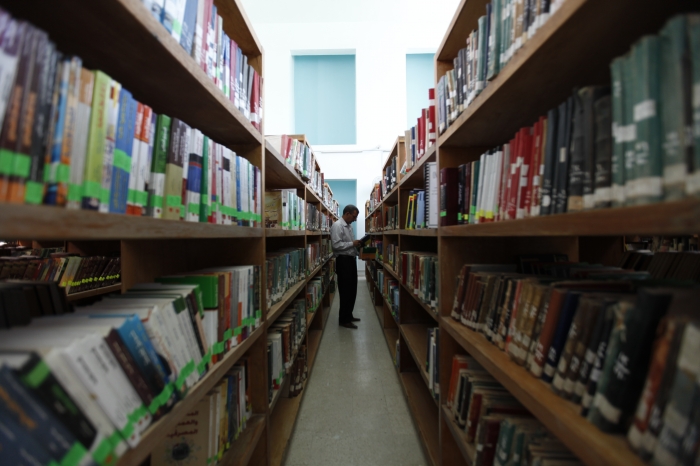


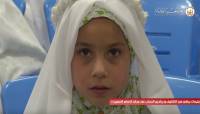
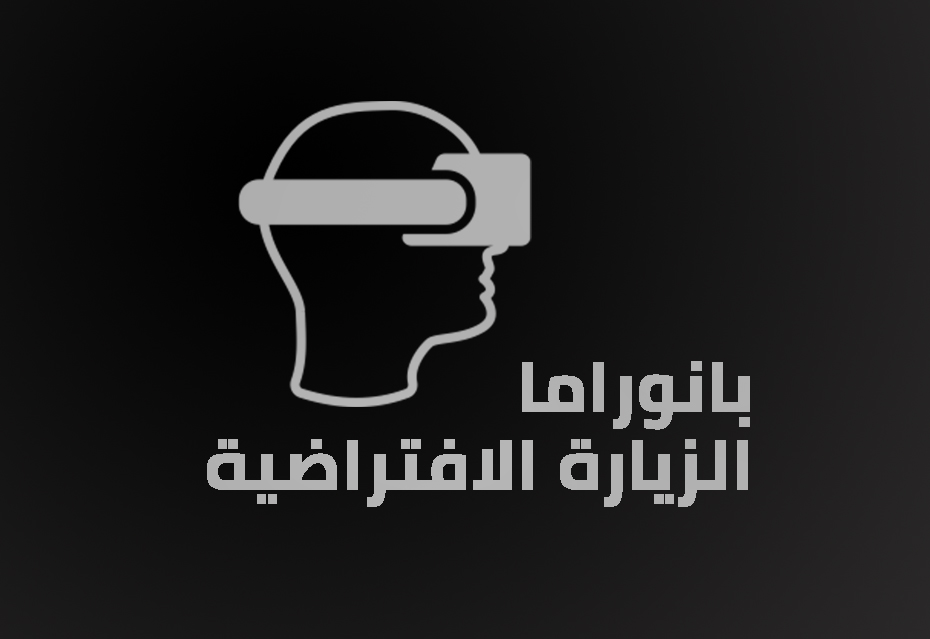

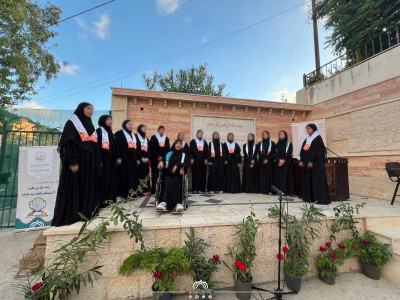
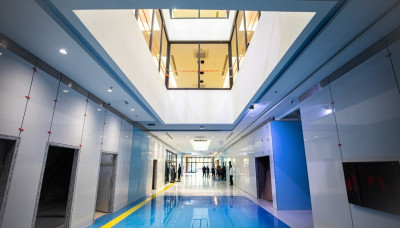

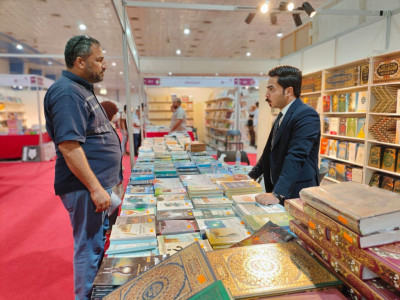
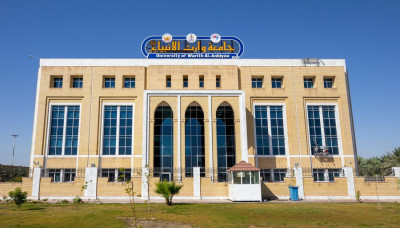
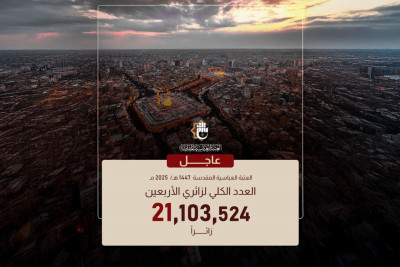
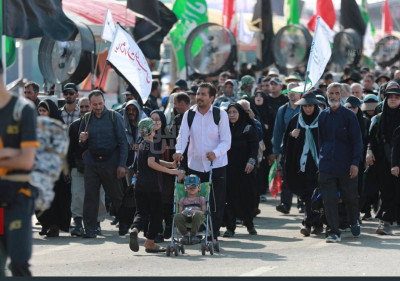
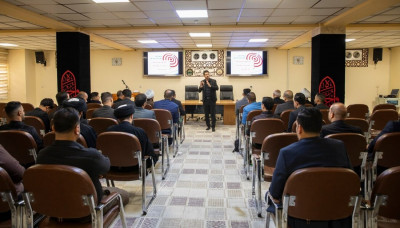
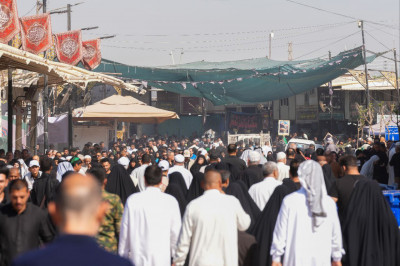

اترك تعليق